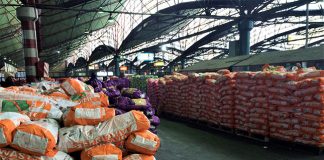However, South Africa should not agree to lower its food safety and health standards to accommodate the US.
The statement was released after a deadlock was reached in the negotiations on the agricultural component of the African Growth and Opportunity trade act (AGOA).
SAPA CEO Kevin Lovell dismissed accusations from the Association of Meat Importers and Exporters of South Africa (AMIE) earlier this week that SAPA was ‘creating conflict’ between SA and the US.
David Wolpert, CEO of AMIE, told Farmer’s Weekly that SAPA did a laudable job in the initial negotiations. However, SAPA “dragged their heels and demonised the Americans for some reason.”
The main problem “is that it took South Africa seven months to put quota regulations in place, resulting in insufficient time to resolve veterinary issues,” said Wolpert.
However, Lovell said even if the US removed trade benefits for certain agricultural exports, this would not remove the right to export any product listed under AGOA: “It will only affect the duty-free access for our agricultural exports.”
Volume drops in SA’s agricultural exports were expected to be limited, added Lovell. Figures supplied by SAPA indicated that SA’s agricultural exports were worth approximately US$170 million (R2,69 billion), while total AGOA trade amounted to about US$2 billion (R31,6 billion).
The losses that might occur would be a small price to pay for animal and human health, said Lovell.
Lovell said the risk to South Africa’s AGOA agricultural export benefits was the result of the actions of the US, and not South Africa.
He said it was regrettable that the US raised the issue of salmonella, and the presence of this disease in US poultry imports, only in the past few months. Negotiations have been underway since 2014. “Had US negotiators raised the issue earlier, it would have been long resolved,” he said.
“We still believe that a workable compromise can be found and urge the parties to continue negotiations until this point is reached. South Africa simply can’t afford anything less,” said Wolpert.










